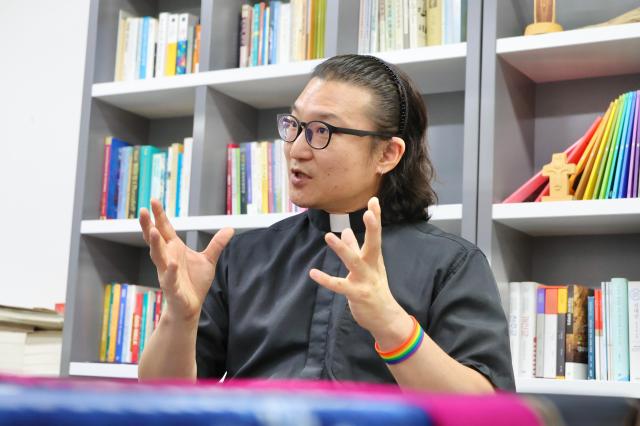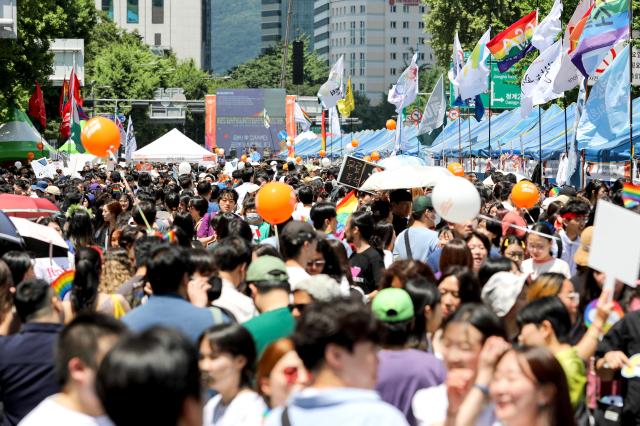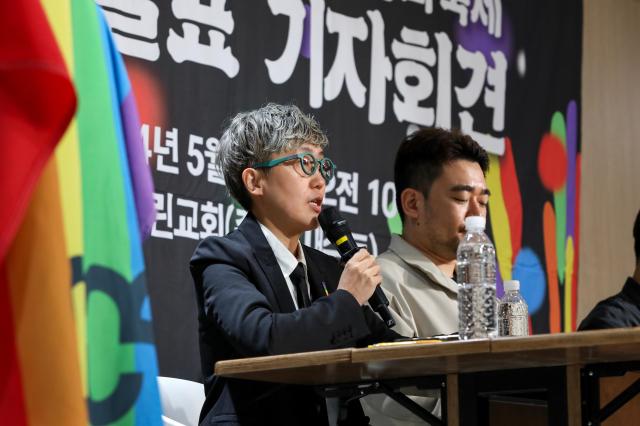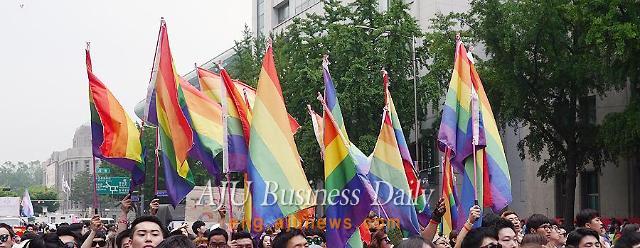
SEOUL, April 29 (AJP) - Even when minds do not change, Pastor Lee Dong-hwan believes dialogue can move hearts.
“If we can at least open a conversation and listen to each other, even without changing our opinions, that itself is meaningful,” he said during an interview with AJP at his office in central Seoul.
Lee recalled a three-hour phone call he had with a conservative media figure. “We didn’t end up changing each other’s minds, but we respected each other. That conversation alone was meaningful,” he said.
Lee is no stranger to controversy. Once a minister under the Korean Methodist Church (KMC), he faced suspension and eventual expulsion after offering a blessing to LGBTQ individuals at the 2019 Incheon Queer Culture Festival. His journey had started earlier, when a member of his congregation came out to him, forcing him to confront contradictions within the faith he had long practiced.
In the aftermath, he founded “Queer and A,” an organization dedicated to advancing LGBTQ rights within Protestant Christianity. In 2022, Amnesty International Korea awarded him a merit prize for his activism.
Within South Korea’s Christian community, attitudes toward LGBTQ people remain deeply divided. “They say, ‘Look, the Bible clearly says it’s a sin,’” Lee said. “But the Bible must be read within its historical context. If we took every word literally, we would also have to uphold slavery and treat women as property.”
For Lee, Christianity’s core teachings are not about clinging to ancient prohibitions. “Love, justice, and peace — those are the truths we are called to live by,” he said.
He believes Christians have a responsibility to stand with marginalized groups, not turn away from them. “If we truly believe that every person is created by God and that God's love has no mistakes, then we must recognize and respect LGBTQ people exactly as they are,” Lee said.
Lee also spoke about the broader battle for the Anti-Discrimination Act, a law designed to protect marginalized groups but long stalled in the National Assembly.
“We need it,” he said plainly. Yet some Christian groups remain fiercely opposed, warning it could infringe upon religious freedom and punish dissent. “But we are a nation with church and state separated,” Lee said. “It’s troubling that religious pressure is blocking basic human rights.”
He shared that politicians often tread carefully, fearing backlash from mega-churches. “In local elections, even a swing of 50 to 100 votes matters,” he said. “When a pastor with 5,000 or 10,000 followers says they’ll organize against you, it’s a big threat.”
Lee sees today’s Protestant churches standing at a crossroads. “Membership is shrinking, trust is collapsing, but instead of reflecting, they cling even harder to outdated narratives,” he said. “They use LGBTQ issues like a weapon to keep their followers united.”
Yet, he holds onto a cautious optimism. “Younger Christians are different,” he said. “Change will come faster in society than in churches. Inside the churches, it will take decades, not just ten years.”
For Lee, engagement remains non-negotiable. “Even if someone believes homosexuality is a sin, that’s no reason for hatred,” he said. “Respect, compassion, and openness should be Christian virtues.”
He often reflects on what Jesus would do today. “If Jesus were among us now, he would be eating, drinking, and walking alongside the marginalized,” Lee said. “If we ask ourselves who Jesus would be with today, it would be the social minorities. The fired workers, the disabled, and the LGBTQ community. Christians must be on their side.”
Looking back on his first participation in the Queer Culture Festival, Lee smiled. “At first, I just went to fill in. I didn’t think much of it,” he admitted. “But when I scattered the flowers during blessings and saw everyone’s faces light up, I realized — this is what a pastor should do.”
Since then, he has never missed the festival, seeing it as a rare moment where walls fall away and simple human joy takes over. “There’s no reason to withhold blessings from anyone,” he said. “They are all God’s children.”
As Pride month approaches, Lee admitted he sometimes worries that his battles bring an unwanted seriousness to a day meant for celebration. But he remains determined.
“Fighting for change inside the church is fighting for change in the world,” he said. “It may take ten, twenty years or more. But I believe a better day will come. I hope it will be a truly happy Pride.”
Copyright ⓒ Aju Press All rights reserved.





View more comments